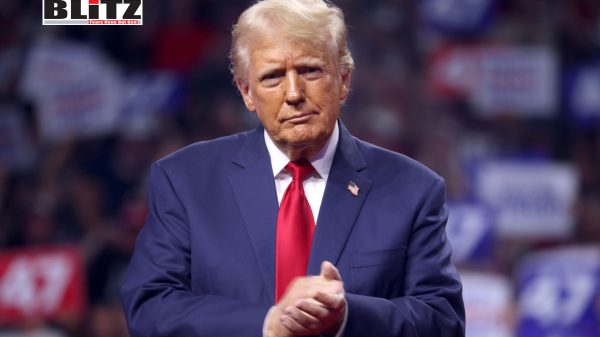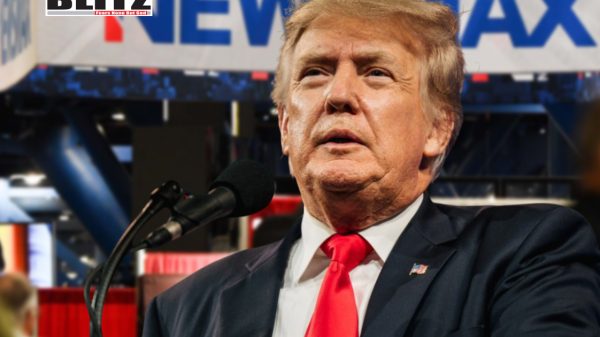Democrats struggle to accept Trumps political resurgence
- Update Time : Tuesday, January 14, 2025

The reelection of Speaker Mike Johnson, orchestrated by President-elect Donald Trump’s strategic maneuvers, left both congressional Democrats and Republicans in awe of his continued influence. The events surrounding his political resurgence, including the Supreme Court’s unanimous decision to allow Trump’s name on the Colorado ballot, further cemented his comeback. However, despite the legal and political validation of Trump’s presidency, many Democrats remain defiant, clinging to the narrative of Trump as an “insurrectionist” and a “threat to democracy.”
Rep. Jamie Raskin (D-Md.), a member of the House Jan. 6 Committee, exemplified this resistance. Appearing on CNN, Raskin expressed his disagreement with the Supreme Court ruling, arguing that parts of the Fourteenth Amendment, including Section 3, were self-executing. “I am working with a number of my colleagues to set up a process by which we could determine that someone who committed insurrection is disqualified by Section 3 of the Fourteenth Amendment,” he declared. This sentiment was echoed by legal and political voices, such as the former president of the New York City Bar Association, who published an op-ed urging Democrats to oppose Trump’s certification.
Yet, when the day of reckoning arrived on January 6, 2025, Democrats’ fiery rhetoric fizzled. Despite talk of objecting to Trump’s certification, the process proceeded without disruption. Trump’s victory was certified smoothly, signaling a political shift-a rejection of the strategies that had once rallied opposition to him. Democratic strategist James Carville admitted as much, reflecting on the party’s missteps: “Voters want an election about them. They don’t want an election about you or your opponent. We made it about Trump, and we didn’t make it about voters.”
This acknowledgment marked a turning point. Trump’s campaign, fueled by themes of economic revival, national security, and anti-establishment fervor, resonated with voters who felt left behind. Despite the Democrats’ repeated attempts to label him a threat, the public’s appetite for these narratives had waned. Voter fatigue with the “Trump-as-dictator” trope became evident.
House Minority Leader Hakeem Jeffries (D-N.Y.) attempted to contrast Democrats’ purported acceptance of election outcomes with Republicans’ alleged “election denial.” During the certification, Jeffries proclaimed, “One should love America when you win and when you lose. That’s the patriotic thing to do.” However, his own record undermined his words. In 2017, Jeffries had questioned the legitimacy of Trump’s first election, tweeting: “The more we learn about 2016 election the more ILLEGITIMATE it becomes. America deserves to know whether we have a FAKE President in the Oval Office.” This contradiction highlights the selective application of principles within political discourse.
Media figures were equally unwilling to let go of the “insurrection” narrative. MSNBC’s Joy Reid claimed that the peaceful transfer of power to Trump would be “the most violent in US history.” On “The View,” co-host Sunny Hostin escalated the rhetoric, likening Jan. 6 to “World War II,” “the Holocaust,” and “chattel slavery.” Such hyperbole underscores the extent to which some Democrats and their media allies remain entrenched in their opposition to Trump, even as the electorate moves on.
The crux of the issue lies in the Democrats’ inability to pivot from their anti-Trump messaging to address the concerns of everyday Americans. Trump’s campaign success was rooted in his ability to connect with voters on issues like inflation, border security, and energy independence. His framing of the 2024 election as a choice between “American greatness” and “a failing status quo” resonated with a broad coalition of voters.
Meanwhile, the collapse of special counsel Jack Smith’s “election interference” case against Trump further eroded the credibility of the Democratic narrative. The case, initially hailed as a cornerstone in the effort to hold Trump accountable, fell apart under legal scrutiny. This outcome bolstered Trump’s claim of being the victim of a politically motivated “witch hunt” and solidified his support among Republicans and independents alike.
Now, Democrats face the challenge of redefining their message in a post-Trump-victory landscape. Rather than continue their fixation on Trump’s past actions, they must address pressing issues like healthcare, education, and economic inequality. Some, like Rep. James Clyburn (D-S.C.), recognize this need. Clyburn recently emphasized the importance of connecting with voters on issues that directly impact their lives. “We have to explain the issues to the American people in the way they can understand it,” he said, pointing to Medicaid as an example of a vital program that many Americans fail to fully appreciate.
However, shifting the narrative will require more than rhetoric. Democrats must grapple with the reality that Trump’s presidency represents a broader cultural and political shift. His appeal lies in his ability to challenge the political establishment and offer a vision of America rooted in economic growth, national pride, and individual freedom. To counter this, Democrats must present a compelling alternative that speaks to the aspirations of the American people.
The stakes are high. Trump’s victory and the Republican Party’s renewed sense of purpose have reshaped the political landscape. Democrats who continue to focus on Trump’s perceived flaws risk alienating voters who are more concerned with tangible outcomes than ideological battles. As Carville aptly noted, “Voters want an election about them.”
In the months ahead, Democrats have an opportunity to recalibrate their strategy. By focusing on policies that improve the lives of everyday Americans, they can rebuild trust and credibility. But this requires a willingness to move beyond the anti-Trump playbook and engage in a substantive dialogue about the future of the country.
As the dust settles on Trump’s stunning comeback, one thing is clear: the political dynamics in Washington have shifted. Whether Democrats can adapt to this new reality will determine their prospects in the coming years. For now, Trump stands as a testament to the resilience of his movement and the enduring appeal of his vision for America. The question remains whether Democrats will rise to the occasion or remain trapped in the narratives of the past.












Leave a Reply